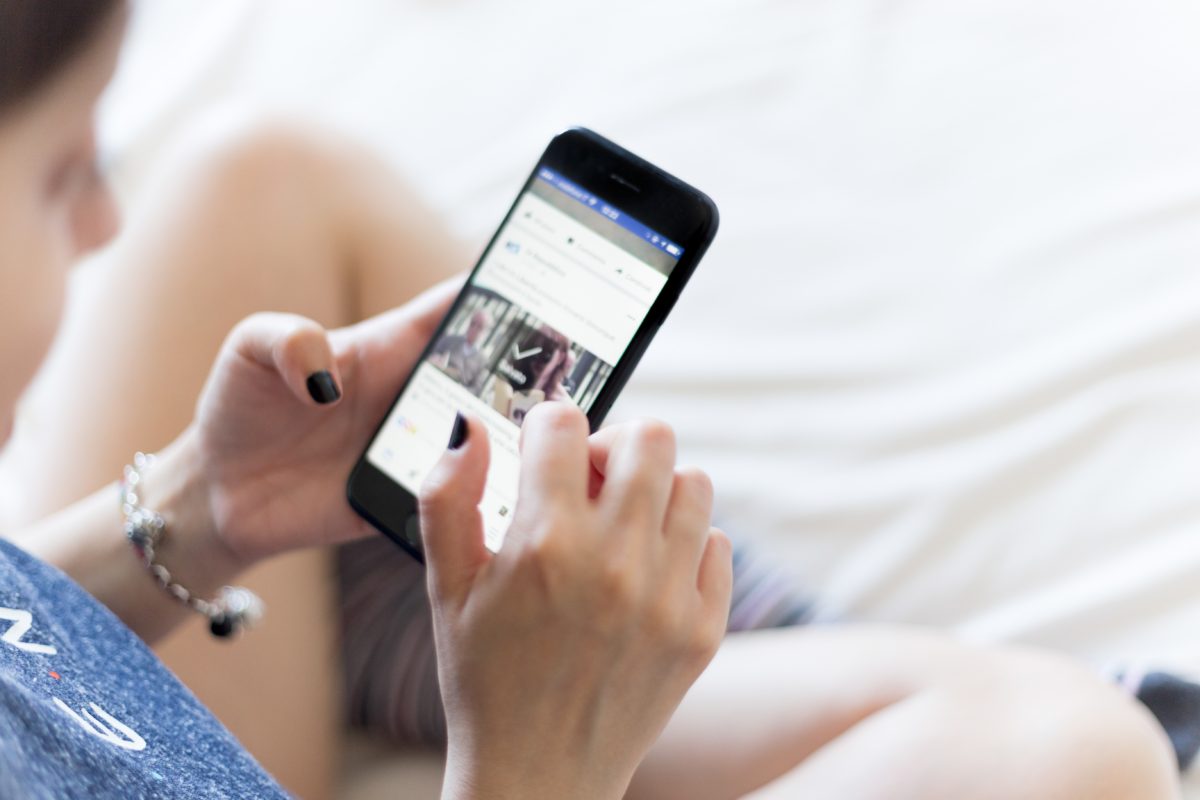Your Phone and Computer’s Blue Light May Be Damaging Your Health

Photo by Oleg Magni on Unsplash
Electronic devices like your cell phone, iPad and many other devices do more than just provide endless hours of entertainment and communication. These electronic devices may also be damaging your health – from your skin to your sleeping patterns. This can be through several things, from emf radiation, the noise they emit and also the visuals of the phone.
What is Blue Light?
Most of us are using a device that emits blue light throughout the day, with studies suggesting that 60% of people spend more than 6 hours a day in front of a digital device.
According to BlueLightExposed.com, blue light waves are among the shortest, highest energy wavelengths, causing flickers that create a glare that have been shown to reduce visual contrast and affect sharpness and clarity. “This flickering and glaring may be one of the reasons for eyestrain, headaches, physical and mental fatigue caused by any hours sitting in front of a computer screen or other electronic device.” LED black-light technology – including TVs, computers, laptops, smart phones and tablets – help enhance screen brightness and clarify, emitting very strong blue light waves.
Here are the Top 10 Nutrients for Healthy Vision. Are you incorporating enough? >>
How Blue Light Impacts Your Skin Health
In an interview with Well&Good, Oculoplastic surgeon, Maryam Zamani, MD, expressed her belief that blue light can contribute to pigmentation, premature aging, and other skin woes. “Blue light penetrates deeper than UVA and UVB rays,” she explains. “It goes into the sub-tissue of your skin and creates a certain type of free radical. And you’re always trying to protect your skin from free radical damage.” This can lead to the breakdown of collagen and elastin, which causes irritation, redness and hyperpigmentation. This may be why you are noticing breakouts on your cheeks and down your jawline.
Be sure to keep your phone and keyboard clean by using alcohol-wipes or sprays that kill the bacteria. You’ll also want to be sure you are including natural and effective skin care solutions, like a facial cleanser and moisturizer, that can remove dirt, bacteria and oils from your skin but provide you long-lasting hydration.
How Blue Light Impacts Your Sleep Cycle
A new study from the Division of Sleep and Circadian Disorders at Brigham and Women’s Hospital in Boston has found that the blue light exerted by your phone and tablet may do more than take away precious hours of sleep – it may increase your risk of harmful diseases and conditions. A problem, Charles Czeisler, PhD, MD, and the Chief of the division says is a “looming public health crisis.”
Each morning when you wake up, your eyes detect light and send signals to your brain to shut off the production of melatonin. Melatonin is a hormone produced in the pineal gland that regulates your body’s 24-hour clock and sleep-wake cycle. [Read more about Melatonin here!] According to Prevention, cells crank up production of the stress hormone cortisol and the hunger-promoting hormone ghrelin. Your body’s
temperature and heart rate also increase. A study published in the journal PNAS in January of 2015, found that individuals who read from an e-reader before bedtime took longer to fall asleep, experienced less REM sleep, and were sleepier the next morning than those who chose to read a book before bed instead. Over a 5 day period, the participants nighttime melatonin levels dropped by 55%.
What to do
There are a few things you can do to protect your vision against these harmful blue light rays.
- Reduce the glare of your device by reducing its brightness. If you are on the computer for long periods of the day, you may want to invest in a glare reduction filter for your screen.
- Increasing the text size on your devices may help to protect against eye strain.
- Take a break every 20 minutes for your device!
- Limiting your screen time is the most effective.
Natural Support for Eye Health
In our retina, an essential region for crystal clear vision, the concentration of two carotenoids – Lutein and Zeaxanthin (abbreviated L + Z) – are essential for ongoing vision health. They are so important to vision that they are commonly referred to as macular pigments. The macula is a filter that helps protect the eye.†
Healthy, robust macular tissue, rich in L + Z, has key functions, including filtering out blue light and focusing on objects for our sharpest vision (such as in reading a newspaper). If it penetrates deep into our eyes, it damages the many small organs in our retina that are required for vision. Having a thicker macular tissue shields from blue light and this robustness is largely due to its L + Z content.†